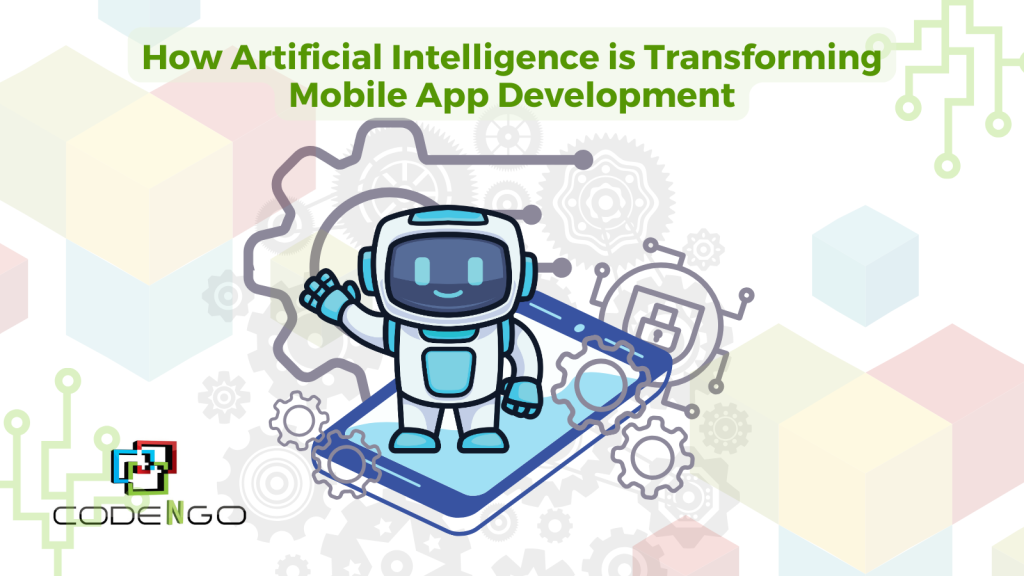AI on Mobile Applications is driving a remarkable wave of innovation, fundamentally reshaping the development process and user interactions. From the intricacies of natural language processing to the predictive power of analytics, AI-infused features are revolutionizing how developers craft applications. This exploration delves into the profound impact of AI on mobile apps, highlighting its crucial role in shaping transformative capabilities within the ever-evolving landscape of technology. As AI continues to lead this surge of innovation, mobile applications are undergoing a paradigm shift, offering users a more intelligent, personalized, and efficient digital experience.

The AI Advantage: Transformative Features in Mobile Apps
Natural Language Processing (NLP): AI-powered NLP is revolutionizing how users interact with mobile apps. From voice-controlled interfaces to chatbots providing real-time assistance, NLP enhances the overall user experience, making apps more intuitive and user-friendly.
Recommendation Systems: AI algorithms analyze user behavior to provide personalized recommendations within mobile apps. This not only enhances user engagement but also boosts retention rates by tailoring content and suggestions based on individual preferences.
Image and Video Recognition: Mobile app developers leverage AI to incorporate image and video recognition features. This enhances the capabilities of apps, enabling functionalities such as augmented reality (AR), facial recognition, and automated content tagging.
Predictive Analytics: Predictive analytics powered by AI allows developers to create apps that anticipate user needs. From predicting user preferences to optimizing app performance, this functionality enhances user satisfaction and app efficiency.
Autonomous Systems: AI enables the development of autonomous features within mobile apps, fostering automation and smart functionalities. This includes voice-activated commands, automated task execution, and personalized user experiences.
Personalization: AI-driven personalization features in mobile apps contribute to user retention and engagement. Developers can create apps that adapt to user behavior, offering a tailored experience through personalized content, recommendations, and interfaces.
Automation: AI-powered automation streamlines repetitive tasks within mobile apps, improving efficiency and user productivity. Features like automated notifications, reminders, and smart workflows enhance the overall app experience.
Healthcare Diagnostics: AI plays a crucial role in healthcare apps, aiding in diagnostics and analysis. Image recognition algorithms can assist in medical image interpretation, making healthcare-related apps more robust and reliable.
Fraud Detection: Mobile app developers integrate AI-based fraud detection mechanisms to enhance security during transactions. This ensures a secure environment for users, building trust and protecting sensitive data.
Language Translation: AI-driven language translation services embedded in mobile apps facilitate global connectivity. Developers can create apps that break language barriers, enabling users to communicate seamlessly across different languages.
Empowering Mobile App Development: A Closer Look
Accelerated Development Process: AI tools and frameworks streamline the development process, enabling faster prototyping and deployment of mobile apps. This results in quicker time-to-market and more efficient development cycles.
Enhanced User Engagement: Personalization and recommendation features powered by AI contribute to increased user engagement. Developers can create apps that keep users interested and involved by offering content and features tailored to individual preferences.
Improved User Retention: AI-powered features contribute to improved user retention by offering a more personalized and relevant experience. Users are more likely to stay engaged with apps that understand and adapt to their preferences over time.
Data-Driven Decision Making: AI allows developers to gather and analyze user data more effectively. This data-driven approach enables informed decision-making in app development, leading to better-targeted updates and features.
Robust Security Measures: AI-based fraud detection mechanisms enhance the security of mobile apps, safeguarding user data and transactions. This not only protects users but also helps maintain the integrity of the app ecosystem.
Seamless Integration of Advanced Technologies: AI facilitates the integration of advanced technologies like augmented reality (AR) and virtual reality (VR) into mobile apps. This opens up new possibilities for innovative and immersive user experiences.
In conclusion, AI-powered features are redefining the landscape of mobile app development, offering developers powerful tools to create more intelligent, personalized, and efficient applications. As the demand for sophisticated and user-centric mobile apps continues to rise, integrating AI into the development process becomes not just a luxury but a necessity. The symbiotic relationship between AI and mobile app development is poised to shape the future of the digital experience, pushing the boundaries of what is possible in the world of mobile technology.
Share this article on